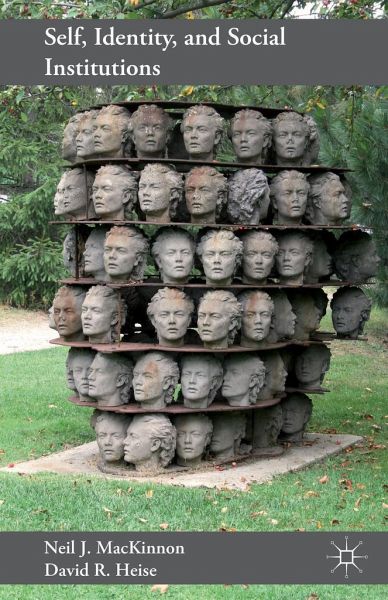
Self, Identity, and Social Institutions

PAYBACK Punkte
26 °P sammeln!
This book shows how the individual constructs a self from the thousands of colloquial identities provided by a society's culture, and reveals how the individual actualizes and sustains an integrated and stable self while navigating the sometimes treacherous waters of everyday institutional life.














